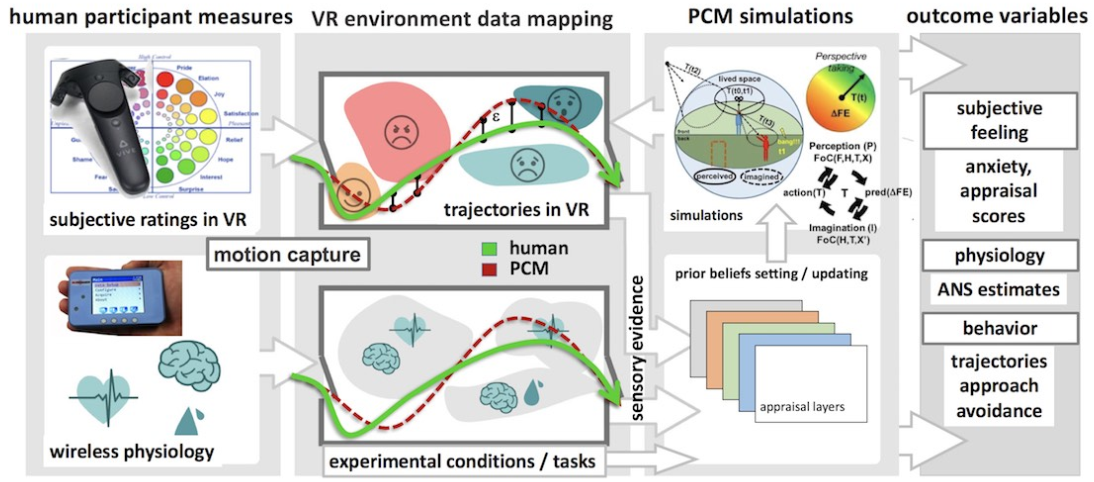Projective Consciousness Model, Emotion Regulation, Social cognition and Psychopathology

We recently introduced the Projective Consciousness Model (PCM) (Rudrauf et al., 2017; Rudrauf & Debbané, 2018) as a starting point towards an integrative computational model of human psychology, with a focus on consciousness, the imagination, emotion and social perspective taking, in connection to the active inference framework and the free energy (FE) principle. We aimed through this model at providing principles for advancing cybernetics in virtual humans and robotic agents, and developing a tool for behavioral science research, based on simulations incorporating explicit psychological mechanisms and parameters, combined with virtual reality (VR). At the MMEF Lab we have developed major components of the model, and implemented partial versions in the context of virtual and robotic agents, in order to study affective processes and social cognition.
Our approach is based on the rationale that modelling virtual humans as artificial agents requires the integration of detailed and complete psychological models, capturing the phenomenology, psychology and biofunctionalities of consciousness and the imagination, in connection to mechanisms of multimodal sensorimotor processing and learning, and affective and social processing.
